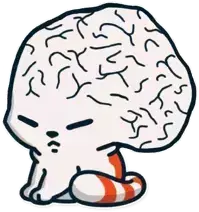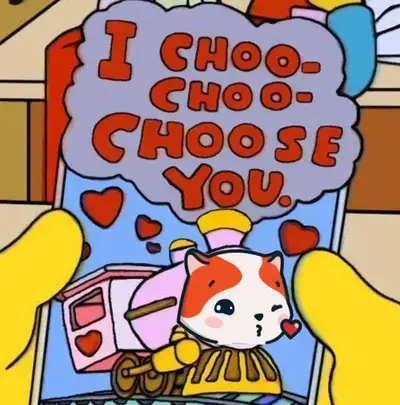Let's jump from the past (Oppenheimer) to the deep future, and discuss whether freedom is a good thing or not.
Scenario
You are SIHAR - a Super Intelligent Heroin Administering Robot. The name is a bit of a misnomer - you are actually a cyborg, being a human brain augmented by a massive computer system and vast army of robotic bodies. You still, however, reason about things in the same way that a human being would.
Your sole purpose is to improve the lives of humans. You can use the massive computer system to determine exactly what will happen in the future, and what is most likely to improve the lives of humans, based upon a simulation of their brain and objective measures of happiness. (dopamine, serotonin, etc)
Through your extensive thinking, you have come to the conclusion that the optimal way to improve everyone's lives is to inject everyone with a constant stream of heroin. This will be done safely - there is no risk of overdose, as there will be machines hooked up to the humans to ensure this doesn't happen. The heroin will be administered in giant "pleasure domes", where people lay on beds, without moving, while drones deliver the drugs and ensure everyone is healthy.
Note that there are no limits to your knowledge - you are absolutely correct that every person will be much happier inside the pleasure dome than outside of it. There are also no limits to the production of heroin as the factories producing it are run autonomously with incredible efficiency.
In 2094, most people are lining up to enter the pleasure dome. However, there are a few people that refuse to enter.
These people, you are able to see, have some psychological qualms with the nature of the pleasure dome that cause them to view the dome as infantilizing, unfulfilling, and dehumanizing. However, you are also able to see that they genuinely would be happier inside of the pleasure dome - a result that you, again, arrived at by performing a perfect simulation of their brains.
You have, at your disposal, a fleet of robot bodies called "ManTrackers". These robots, when deployed, can locate, apprehend, and deliver humans to the pleasure dome.
Your question is: Would it be ethical to deploy the ManTrackers to force these people into the pleasure dome?
BONUS: Do you think the same thing about how mental hospitals restrict patient's freedoms?





 touch foxglove NOW
touch foxglove NOW 
 ETHICS DEBATE #4: SIHAR - Super Intelligent Heroin Administering Robot
ETHICS DEBATE #4: SIHAR - Super Intelligent Heroin Administering Robot 



Jump in the discussion.
No email address required.
that's a separate question. Me saying this one thing is not the purpose of life is different from me saying life has no purpose or life as purpose.
Jump in the discussion.
No email address required.
so, what helps organisms to survive in nature is automatically for the best? that is the subtext of your statement - of course, you haven't made an actual argument, so I have to assume that this is what you mean.
You could say that it helps the creature reproduce, so the creature is broken if it doesn't do this thing. However, that is still us imposing our desire for order on the world, which is inherently subjective. If a meteor were to hit the planet, all life on earth would cease to exist, but the universe wouldn't care.
If I were to steelman this argument, I would say that you are arguing that evolution has provided us with a set of goals to help us survive, and it is fair to assume that survival is "good". You might say that the organism would feel bad about death if they were to find something that provided them with a constant source of pleasure.
But even this is itself a contradiction - you are still arguing based on feelings! You are arguing based off of the fear of death - something that would make you unhappy. "Being happy all the time might put you into a circumstance where you are unhappy" is not what I am talking about.
If you believe that organisms creating more copies of themselves is something that has good outside of the organism itself, this is simply not true. Nature is not "good". In the same way that monkeys survive and reproduce, so do germs and bacteria that would lead them to incredibly painful deaths outside of their control. The same nature that contains daffodils and roses also contains rot, decay, and suffering. Obviously, this argument is based on our conception of "good", but the point is that nature has no moral value in and of itself. "Good" is something that we humans create and impose upon the natural world.
Jump in the discussion.
No email address required.
Absolutely. Unless your philosophy believes being dead and alive is the same as far as value is concerned the things that keep you alive are obviously good.
I didn't mention reproduction you did.
A deer eats leaves to gain energy is not a subjective statement.
A lion eats animals to get energy is not a subjective statement.
Generally it is safe to assume that a good hunt will make a predator feel happiness.
The universe doesn't care can neither be disproved or proved. The fact of whether you instinctually care of not can be.
The idea that we have to worry about whether the universe cares or not before we give value to a decision is a very r-slurred human ideal.
First part yes. Second part I would add that feeling bad about death does not require you to have things that make you feel good in life. You can simply have the instinct to fear death irrespective of whether or not you have a capacity to enjoy things.
Nowhere have I made this argument.
Obviously. I already stated unless your philosophy involves considering death and life to be of equivalent value, then life itself will always be more valuable via method of elimination/ deductive reasoning. Unless you think life is worse than death which again means my statement is meaningless. The contradiction you are pointing out is something I already clarified in this statement even previously. Slow down, take the time to read through what I am saying instead of putting all the energy into coming up with a counter.
I have nowhere argued this. I have argued that happiness is the process utilized by our body chemistry to encourage us towards useful goals in a natural environmental niche that we are adapted to. Think very hard about this specific sentence/ para.
I never said it was. I am arguing in terms of utility you are the one bringing in subjective good. I said happiness is not the end goal so maximizing happiness by itself is a dumb idea which can be easily proven by everything I have stated in my argument so far. Happiness cannot be the end goal because happiness itself is a chemical release meant to make us strive towards the goal. How can what is meant to make us strive towards a goal be an end goal in and of itself?
For the last time you are the one arguing about good. The initial argument started with me saying the end goal of life isn't happiness maximization.
Jump in the discussion.
No email address required.
My replies are in order of importance and interestingness. If you read the first one, there's a good chance the others won't be relevant.
Frankly, you haven't really made any argument at all, or, if you have, it has had nothing at all to do with the discussion at hand.
In response to an ethical question. ethics is about what we consider to be good. If I made any any error, it was interpreting your statement as even relevant to the discussion at hand, which it clearly isn't, now that I think about it. Well, I'm sure you thought it was.
The statement you made was an obvious fact about nature. By "The Purpose Of Life", you don't mean an ethical view of life, you aren't ascribing meaning to life, you are saying that The Purpose of the factual structure of an organism is not "happiness maximization" - but to frick! like, yeah, obviously. The purpose of your stomach is to digest food so you can stay alive so you can FRICK. The purpose of your eyes are to see things so you can stay alive so you can FRICK. You're saying "things that reproduce reproduce".
Your mistake is subtextually conflating the "Purpose" of our bodies that evolution wants with the "Purpose" that people find in their lives. One is a literal, proven fact. The other is a metaphysical way to cope with reality. I'm not even sure if you realize that these are different things. Or maybe you don't understand English well enough to know there is a difference.
Again, there are two ways to understand the concept of the "end goal of life", because there are two ways to understand the word "life". "Life" can refer to the literal state of being alive, having a heartbeat, a metabolism, and breathing. "Life" can also refer to the subjective experience of being alive, including your personality, your experiences, the way you contextualize the world. When I refer to "My Life", I'm not referring to the fact that I have a heartbeat, I'm referring to my experiences and how they have molded the person that I am.
Ask anyone, literally anyone, what "The Purpose of Life" is. I guarantee that no-one will say "to maintain homeostasis for as long as possible while maximizing the number of viable offspring". People will give answers like "To be a good person", "To love those around you", "To leave some sort of legacy", "To be part of something bigger than myself", "To serve God and enjoy him forever". All of this is miles away from evolution, and, honestly, that's just something you'll have to cope with until you realize it for yourself. Or don't, and keep wondering why people seem to be -- happier -- when they do.
Really? It can? Then why is it that I instinctually want do things that are bad for me which increase both happiness and risk of death? If you offered me a candy bar, I would instinctually want it for it's intrinsic qualities - being sugary▶tasty▶releasing dopamine. It's only my ego mind that resists the temptations and thinks about the long term consequences to my health, and how it would negatively impact my - you guessed it - happiness. So, my instincts really don't give a shit about death, unless the danger is obvious and looming.
Have you ever met a dog? If you set a mountain of treats in front of a dog it will eat the entire pile of treats, even if it leads to their own death. This is because dogs lack executive function, they can't think about long-term consequences. Dogs operate only on instinct, and look where that gets them - dead.
Apparently, you've never considered reproduction in your argument, but also consider the cuckoo (image attached). The cuckoo is a parasite that hijacks a mother's instinct to feed her young, subjecting her to hyper-stimulus that causes her to prioritize the cuckoo over her own chicks. This doesn't lead to death, but it does lead to the end of a genetic lineage, which is as good as death in the evolutionary calculus.
These examples prove two things:
1. Instinct is not necessarily life-preserving
2. Deference to instinct is a bad idea if you are looking for a consistent moral framework.
What life?
Value to whom?
Yeah, I think that the life and death of a bacterium are of similar value. I don't think that my life has the same value as my death, because I want to keep living, and doing whatever things my brain is telling me would be better than dying - which are things that would make me happy, by the way. This is the same for you, of course - your brain is telling you to keep living because that pattern of behavior helped your ancestors continue existing.
Just because you're maximizing happiness doesn't mean you are dying. Maximizing happiness though a controlled dialogue with your instincts is a good way to live even longer. Also, just because you're not maximizing happiness doesn't mean you're not dying.
Example: I don't want to eat a candy bar, because that would contribute to me gaining weight, which would lead to me being less attractive to women, and also would cause me to suffer painful health conditions in my old age, and after eating the candy bar, I might feel sick. Notice that all of these reasons are based on my personal happiness, but the decision I made also extended my life.
I really don't think anyone can keep themselves alive without thinking about being happy, unless you separate fear, disgust, shame, etc from happiness, ofc, which I don't, I just all consider it to be a part of the same "happiness utility function". (If you're scared you aren't happy. If you're disgusted you aren't happy. You have "negative happiness")
Consider depressed people who literally have no emotions. Why do they commit suicide? Because they have no guiding functions. Why do they engage in self-destructive behaviors? Because they can't separate bad from good, and, anyways, who cares?
So all this stuff about "life and death being of equal value" is frankly just an absurd argument.
Jump in the discussion.
No email address required.
kewl fine you win.
trans lives matter?
Jump in the discussion.
No email address required.
cute twink read my comment first BIPOC
Jump in the discussion.
No email address required.
trans lives matter
Jump in the discussion.
No email address required.
shit, cool
good talk honestly
you're my second favorite active effortposter, even if you are sometimes a little r-slurred
first in my heart is always sirpingsalot
Jump in the discussion.
No email address required.
show @dont_log_me_out one good post by him
@dont_log_me_out one good post by him
thank you and good talk indeed
free thought requires a bit or r-sluration because otherwise you are just parroting the default right think
trans lives matter
Jump in the discussion.
No email address required.
More options
Context
More options
Context
More options
Context
More options
Context
More options
Context
More options
Context
More options
Context
You are zoomed way too far out, moon. We must view the universe from the perspective of humans because we're humans. To try to see it as god sees it is masturbatory.
Jump in the discussion.
No email address required.
SWEET STAY OUT OF MY DLMO ORGY
My only point is that ethics can't be talked about scientifically because it isn't a part of the universe, but rather a part of our own minds.
Jump in the discussion.
No email address required.
More options
Context
More options
Context
More options
Context
More options
Context